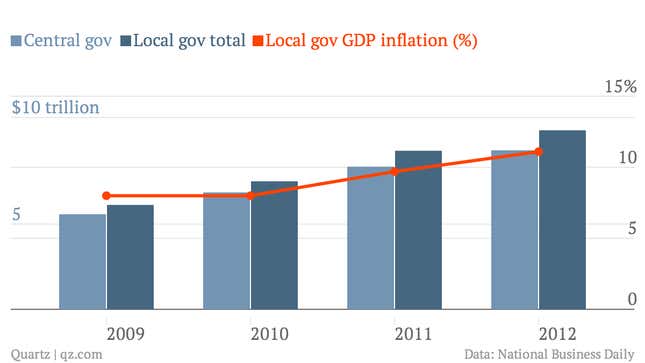If local officials are to be believed, China’s economy is bigger and growing even faster than we reported earlier this month.
According to a report (link in Chinese) today by Economic Information Daily, a Chinese news outlet, China’s GDP should be about 3.7 trillion renminbi ($610 billion) larger than the central government’s estimate of 38.7 trillion renminbi. That’s according to 28 of China’s 31 provincial-level governments that have reported economic data so far. Moreover, no province, municipality or autonomous region reported growth slower than the national rate of 7.8%, according to another report (link in Chinese).
Of course, these local government statistics are not to be believed. Chinese economic data, especially provincial-level GDP figures, are infamously unreliable. One reason is that economic growth has long been the measure of an official’s performance, and chance for a promotion, which leads local authorities to massage or inflate economic data.
As as we reported back in July, the trend in GDP inflation, or what some call China’s problem with “statistical corruption,” is only getting worse.

There are a few technical reasons for the discrepancy. Since the mid-1980s, economic data has been collected separately at the national and provincial levels and agencies, which often use different methods of calculation. (The government has proposed merging the separate systems.) Also, several local governments can claim economic activity that spans more than one province, leading to double counting.
President Xi Jinping said over the summer that the party would stop looking at GDP alone when evaluating officials’ performance. Top officials have said China may be able to afford slower growth (paywall), as it transitions into a more consumer and services-led economy, but local officials may not yet believe the hype. If they start to buy in, discrepancies in the data may start to taper.




